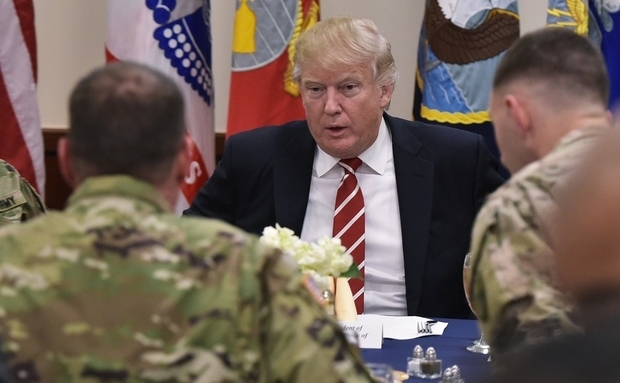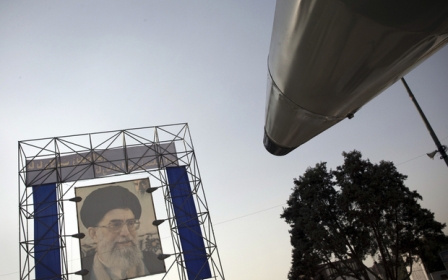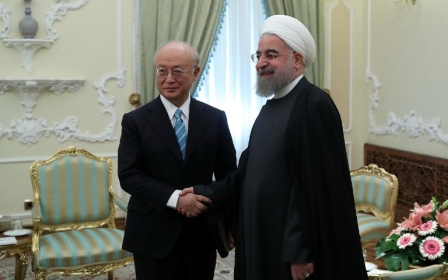US warns Iran of 'new and serious consequences' if Americans not returned

President Donald Trump's White House dialed up the pressure on Iran on Friday, demanding the quick return of Americans detained in the Islamic republic.
"President Trump is prepared to impose new and serious consequences on Iran unless all unjustly imprisoned American citizens are released and returned," the White House said in a statement.
The tough warning comes just days after Trump rowed back on a campaign promise and upheld the Iran nuclear deal, while introducing new non-nuclear related sanctions.
The threat of prisoner-related sanctions opens up a new front in tensions between Tehran and the Trump administration.
The measure comes after a Chinese American accused of "infiltration" in Iran was sentenced to 10 years in prison.
The man was identified as Xiyue Wang, a 37-year-old researcher at Princeton University.
US officials say Trump has taken a keen interest in the fate of Americans held overseas and was deeply affected by the case of Otto Warmbier, a student who was released last month from a North Korean prison in a coma and died shortly after being sent back home.
"President Donald J. Trump and his Administration are redoubling efforts to bring home all Americans unjustly detained abroad," the White House statement said.
"The United States condemns hostage takers and nations that continue to take hostages and detain our citizens without just cause or due process."
The statement mentioned Xiyue Wang by name, along with Siamak and Baquer Namazi and ex-FBI agent and CIA contractor Robert Levinson - who went missing in March 2007.
Washington and Tehran have had no diplomatic relations since April 1980 in the wake of the Islamic revolution, and tensions have sharpened under Trump after a brief warming under his predecessor, Barack Obama.
The two countries along with other major powers signed an accord 14 July 2015 aimed at curbing Iran's nuclear program. Washington has continued to honor the accord despite Trump's threats as a candidate last year to "rip it up."
New MEE newsletter: Jerusalem Dispatch
Sign up to get the latest insights and analysis on Israel-Palestine, alongside Turkey Unpacked and other MEE newsletters
Middle East Eye delivers independent and unrivalled coverage and analysis of the Middle East, North Africa and beyond. To learn more about republishing this content and the associated fees, please fill out this form. More about MEE can be found here.




